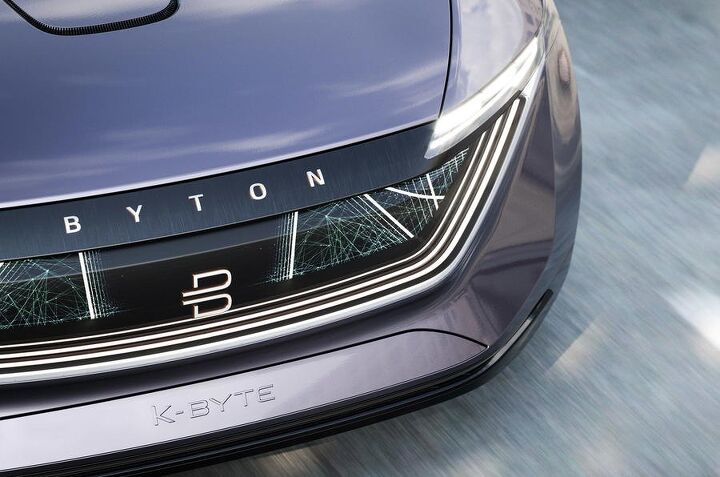#M-Byte
Plug Pulled: Byton Suspends Production, Plans Reorganization
Chinese electric car startup Byton will reportedly idle production next month as it attempts to reorganize itself. While the coronavirus emerged as a villain in this play, the issues confronting Byton actually seem pretty dire. The company isn’t just idling factories to address a health crisis, it’s shutting things down for six months while it engages in more fundraising and tries to pay what’s owed to employees.
That’ll be tough with no normal income. Byton has already furloughed a large portion of its staff in California and plans to cease all production in Nanjing. While we knew the PRC’s approach to electrification would ultimately result in countless EV startups going under, we didn’t expect Byton to be among them. Slick products, good marketing, and interesting designs made it seem like it could go the distance — now it seems wholly preoccupied with survival.
Sink or Swim: What Kind of Automotive Startup Will Byton Be?
After showcasing its first concept vehicle at CES 2018, electric car startup Byton has come back with another for CES Asia. On Monday, the company also announced it had recently raised more than half a billion dollars in capital.
Byton looks to be on the right path, but the trail it’s marching down has already been taken by other EV startups and resulted in failure. For example, Faraday Future drove itself into a brick wall after failing to deliver on its promises for two years straight. It suffered development delays on its prototype, engaged in some sketchy deals, and practically collapsed when its main Chinese backer ran out of money. That isn’t to presume Byton is the same kind of company, but it’s offering the same type of car under vaguely similar circumstances.
Loaded with tech, Byton’s autonomous, all-electric K-Byte sedan and its SUV sibling (the M-Byte) are right in line with every manufacturers’ future vehicle concepts. They’re perpetually connected to the web, capable of self-driving, and chock full of touchscreens. But they aren’t real cars yet, even though the startup suggests they’ll be available for just $45,000 — and relatively soon. The SUV will apparently go into production in 2019, with the sedan following by 2021.

















Recent Comments